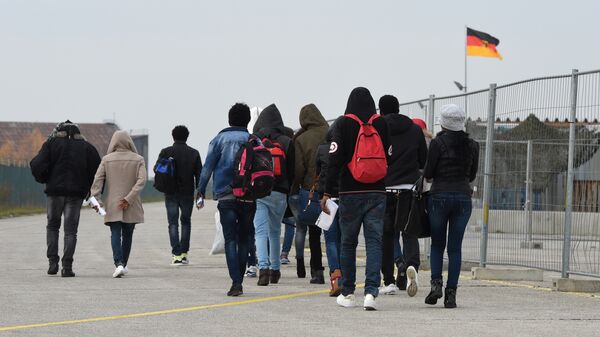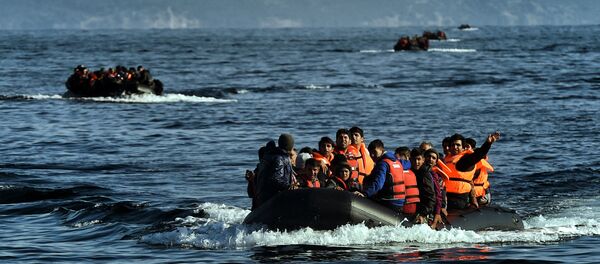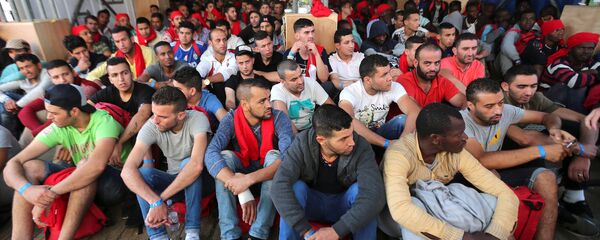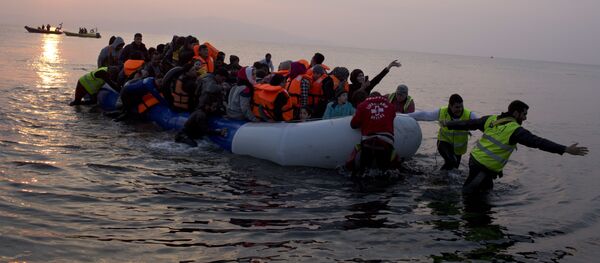Sputnik: How will Austria's plan to cut benefits affect the migrants and refugees that are in the country?
Katerina Kratzmann: I think behind this is the issue of social justice, this, of course, gives the answer to people feeling that this is sort of unfair that migrants coming to Austria get a certain amount of money without ever having paid into the social system. So now, as a consequence, German is key. People have to have language skills to claim the full amount of benefits. In my opinion it’s okay to encourage people to integrate.
Sputnik: That’s going to be very difficult because, as far as I understand, a small percentage of the migrants are prepared to really learn the language and really integrate, aren’t they?
Plus, social benefits are what the word says. They are social benefits to support those in need, and they should, therefore, not be subject to any condition, and if you talk about the minimum, also the minimum means the minimum you need to exist and live in Austria. If you cut down the minimum, of course, the question arises, how shall you live beyond the minimum, so the consequence, that you asked me, people are now debating in Austria, and some are saying it is going to have an effect on criminal statistics, because maybe people will become criminals because they don’t have enough money to support their living, others are saying it will encourage people to learn German, so they don’t fall under the minimum, but they meet the criteria to get the minimum, it remains to be seen what the consequences will be for people.
Sputnik: How’s the public in Austria going to react to this plan? Will it be welcomed?
Katerina Kratzmann: In Austria it's a very highly discussed issue of migration integration, as we have all over Europe, and people are sort of divided in two sides. One side is saying that people have to integrate and you have to force them a little bit more, you have become more restrictive after the refugee crisis has gone too far and people have to integrate, that’s what we want. And on the other side, there are people who are saying we have to support people, give them time, the integration process takes time, it’s not from day one, so they have a more liberal approach, and, of course, Austria's a diverse society, we have all the different voices in society and it's discussed and debated.
Sputnik: Do you think that these measures might actually stem the flow of new arrivals of migrants?
Sputnik: What are the chances there might be a legal challenge against Austria‘s plan from the European Union?
Katerina Kratzmann: I think that's something that also remains to be seen. We have this rule already in Upper Austria that the minimum has to be gained by meeting certain criteria and that also has to receive a constitutional yes or no. That's something going on in Austria already. I would not be surprised if something is coming from the European Union, but as you know, these processes take a lot of time, so even if it’s only for 2-3-4 years for the politicians it makes sense to do this because you're sending a political symbol, you’re doing something, you're having an activity, and you're saving some money for 2-3 years, even if it's then coming out of the Constitution and you have to change the law again.
Sputnik: When we talk about the difficulty of integrating migrants one has to bear in mind that, yes, perhaps, there needs to be more of a push and, perhaps, more of involvement of local people in helping these people integrate, but there’s the different ages. The younger people, the younger migrants will certainly be interested in learning the language, in integrating, but people of an older age might find it very difficult?
The views and opinions expressed in this article are those of the speaker and do not necessarily reflect those of Sputnik.






